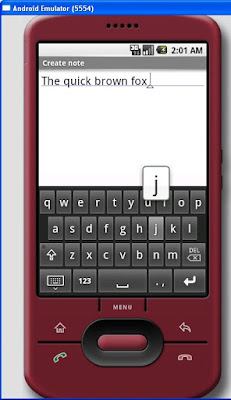If you are a Windows Mobile developer, chances are you need to write applications that allow the Windows Mobile device to talk to the host computer. In such cases, you need to know a little about the IP address assigned to the device or emulator. The following is a little research that I have done and hopefully the information presented here will make your life a little easier.
Assumption: The host computer's IP Address is 192.168.1.100.
For Windows Mobile Classic/Professional Devices or Emulators
If you connect your device to ActiveSync, the following IP addresses will be assigned:
Comp: 169.254.2.2
Device: 169.254.2.1
If you connect your emulator to Activesync, the following IP addresses will be assigned:
Comp: 192.168.1.100
Emulator: 192.168.1.101 (next available IP address)
If you use Network Card Mapping for your emulator, the following IP addresses will be assigned:
Comp: 192.168.1.100
Emulator: 192.168.1.101 (next available IP address)
Hence, for sockets programming testing using emulator, set the server and client to rendezvous at the computer's IP address and not 169.254.2.2.
For sockets programming testing using real device, set the server and client to rendezvous at 169.254.2.2.
For Windows Mobile Standard Devices or Emulators
If you connect your emulator to ActiveSync, the following IP addresses will be assigned:
Comp: 192.168.1.100
Emulator: 192.168.55.101 (next available IP address)
If you use Network Card Mapping for your emulator, the following IP addresses will be assigned:
Comp: 192.168.1.100
Emulator: 192.168.1.101
Hence, for sockets programming testing using emulator, set the server and client to rendezvous at the computer's IP address and not 169.254.2.2 and use network card mapping.
 I am happy to announce that the above course has been confirmed.
I am happy to announce that the above course has been confirmed.
















 Learn
Learn








